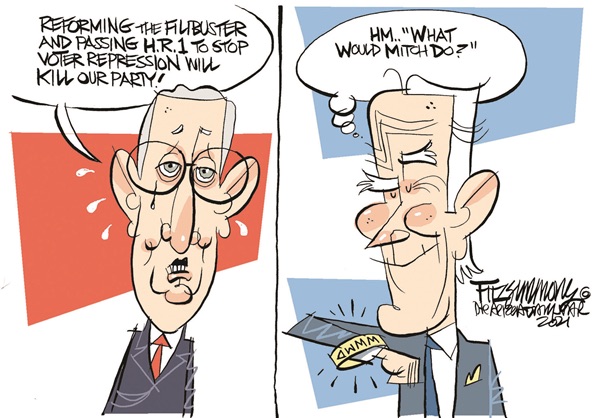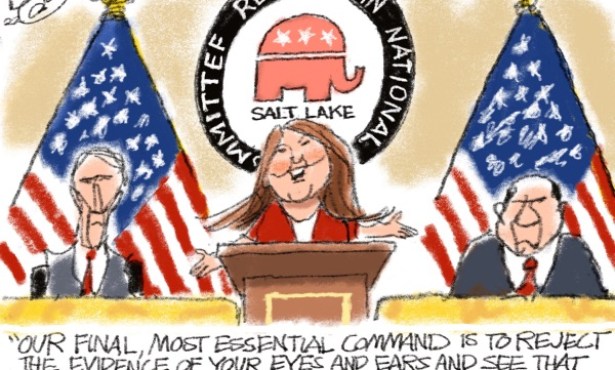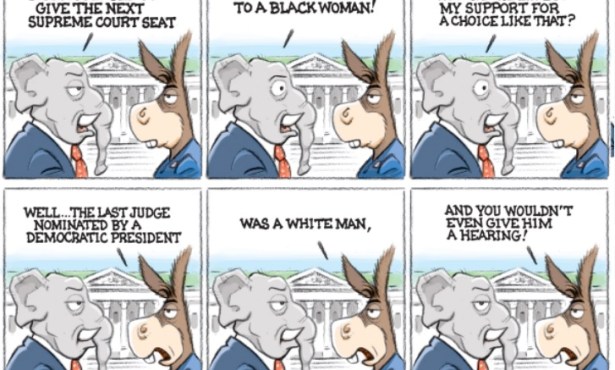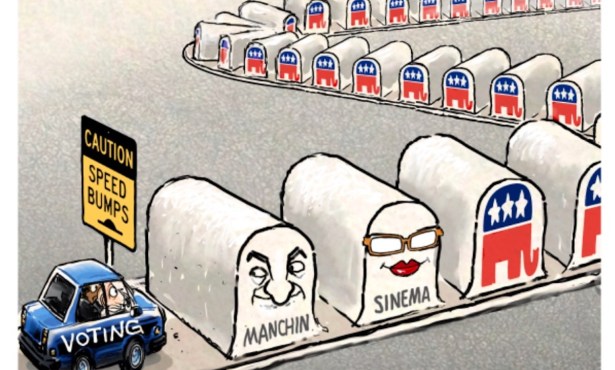We Have to Prove Democracy Works
The Filibuster Must Be Reformed

I received push-back from readers regarding my article Time to Reform the Filibuster based on the importance of restoring bipartisanship in the Congress. While I am aware that President Biden is an advocate for bipartisanship, and agree it is a preferable way for the country to be governed, I remain convinced that in this post-Trump environment it will be impossible to achieve.
Despite the fact that 70 percent of Americans (including 59 percent of Republican voters) favored the COVID relief bill, not one congressional Republican voted for it. Sen. Mitch McConnell’s response to President Biden’s proposed infrastructure bill was that it “is not going to get support from our side.” Moreover, we’re in the midst of a Republican attack on voting rights, going on throughout the country, which can only be avoided by the Democratic Senate passing SB 1.
There are now 253 bills pending in 43 Republican-controlled state legislatures to restrict voting rights. The restrictions include limiting mail-in voting, restrictions on early voting, and reduced voter registration opportunities. Indeed, in Georgia the law makes it a crime to give voters, waiting in long lines, water or food. Despite the fact that those lines, in the 2020 election, were created by Republicans closing polling places in minority neighborhoods. President Biden rightly called these laws “un-American [and] sick.” He needs to further and clearly advocate for the reform of the filibuster or these” sick” laws will undermine both our democracy and his agenda.
The Republican attack on voting rights is clearly aimed at reducing, rather than expanding, voter participation in the electoral process, especially of minority voters. Minority voters in both Georgia and Arizona provided Democratic victories in traditional red states. The Republican response: make it harder for minorities to vote. SB 1(the For the People Act) would negate these Republican voter restriction laws.
SB1 would facilitate registering to vote; roll back voter ID requirements, require states to provide online and same-day voter registration, mandate that states hold 15 days of early voting, allow voters to return ballots to conveniently placed drop boxes, and increase transparency in U.S. campaign finance laws by requiring “dark money” groups to disclose political donations. In other words, make it easier, rather than more difficult to vote.
Corporations including Coca-Cola, Delta Airlines, American Airlines, Home Depot, UPS, Google, Patagonia, Bank of America, Uber, Cisco, Microsoft, American Express, Citigroup and Aflac have come out against the Republican restrictive voting laws; correctly calling voting “a foundational right in America.” And, Major League Baseball (MLB) canceled its Atlanta All-Star Game because of the suppression laws. If the private sector can do that, surely the Democrats can stand up for voting rights by reforming the filibuster so their majority can pass the legislation.
I have repeatedly argued that we are in the midst of a second civil war, with Republican elected officials acting as combatants in the conflict. These voting laws, predominantly aimed at restricting minority access to the polls, should be labeled for what they are: voter suppression. If America is to remain a functioning democracy, they cannot be allowed to stand. The logical appropriate response is SB1.
President Biden said, “We have to prove democracy works.” Of course, Donald Trump’s “big lie” that the election was stolen from him by voter fraud is the rationalization the Republicans are using to support their attack on democracy. In our divided polarized country, this lie and its spawn have to be defeated. Allowing these anti-voting laws to stand would be like failing to treat a cancer before it metastasizes. If democracy is to succeed in the 21st century the filibuster must be reformed. If not, the will of the majority cannot function. Reform can include restoring the talking filibuster, creating new percents for when it can be used (the “nuclear option”), and/or or reducing the number of votes it takes to overcome the filibuster.
Elections have consequences. If the voters want a Republican majority, they have every right to go to the polls and vote one in. They should not, however, be allowed to restrict their fellow Americans from voting so they can regain that majority.



